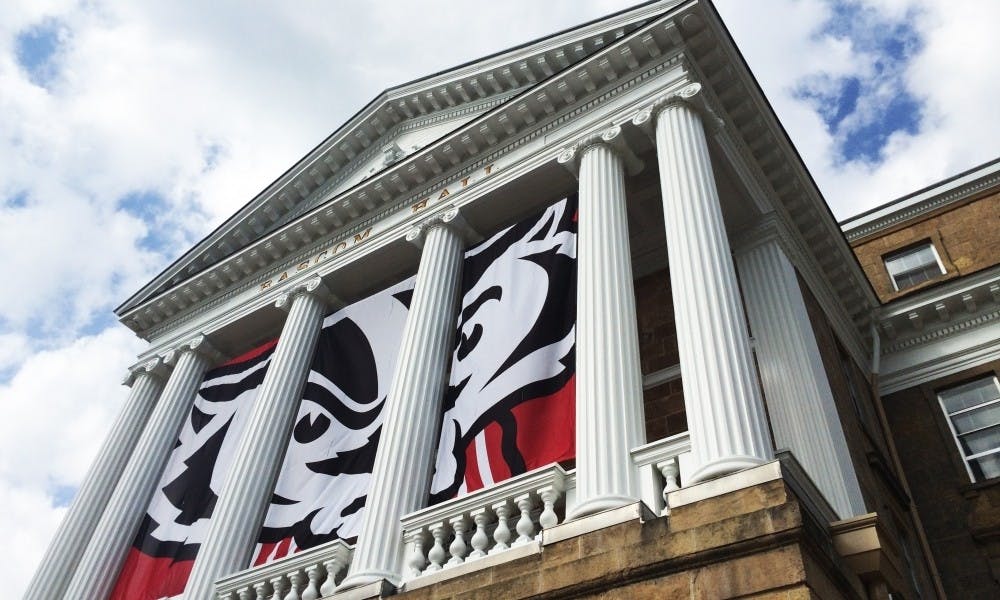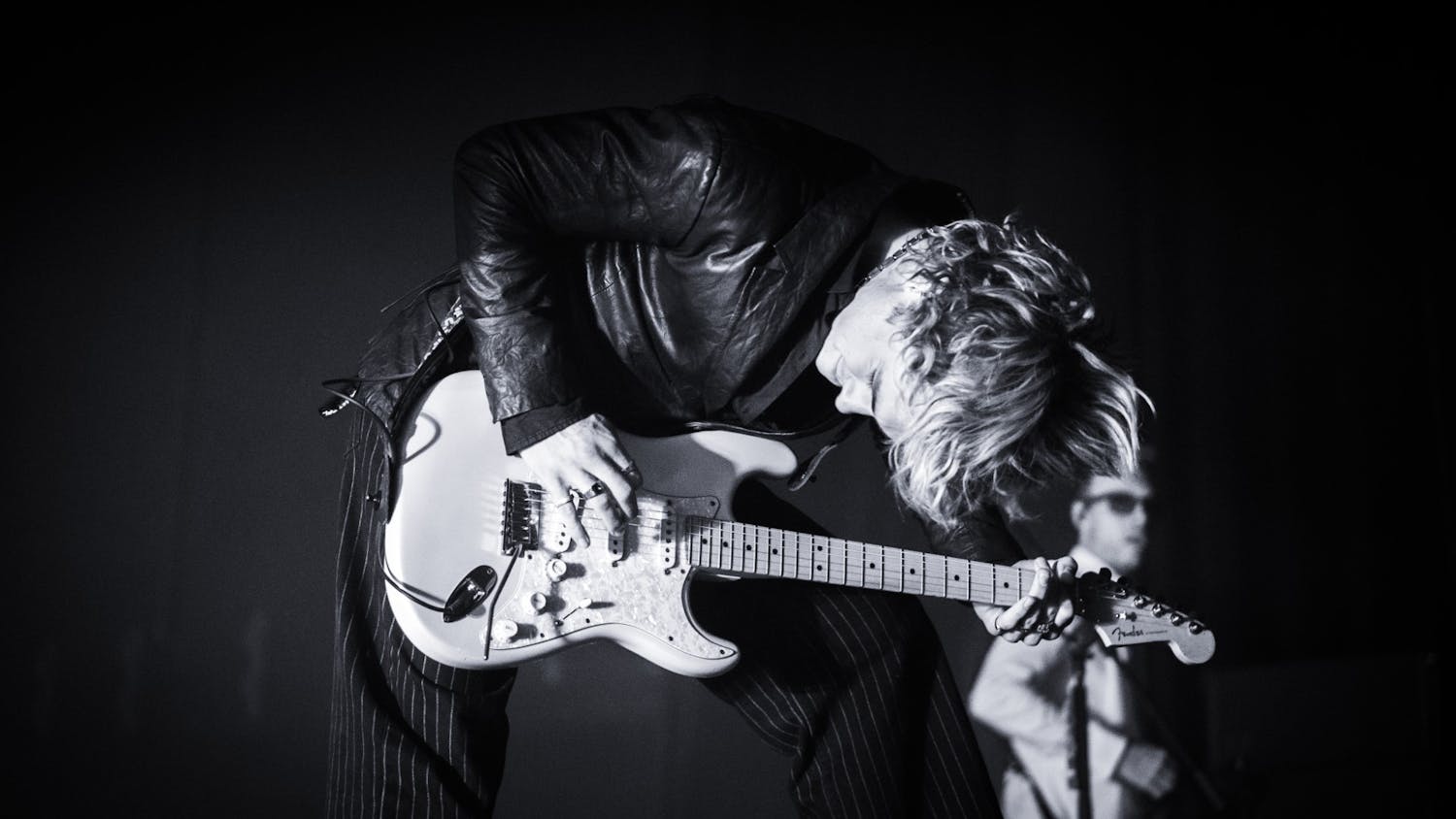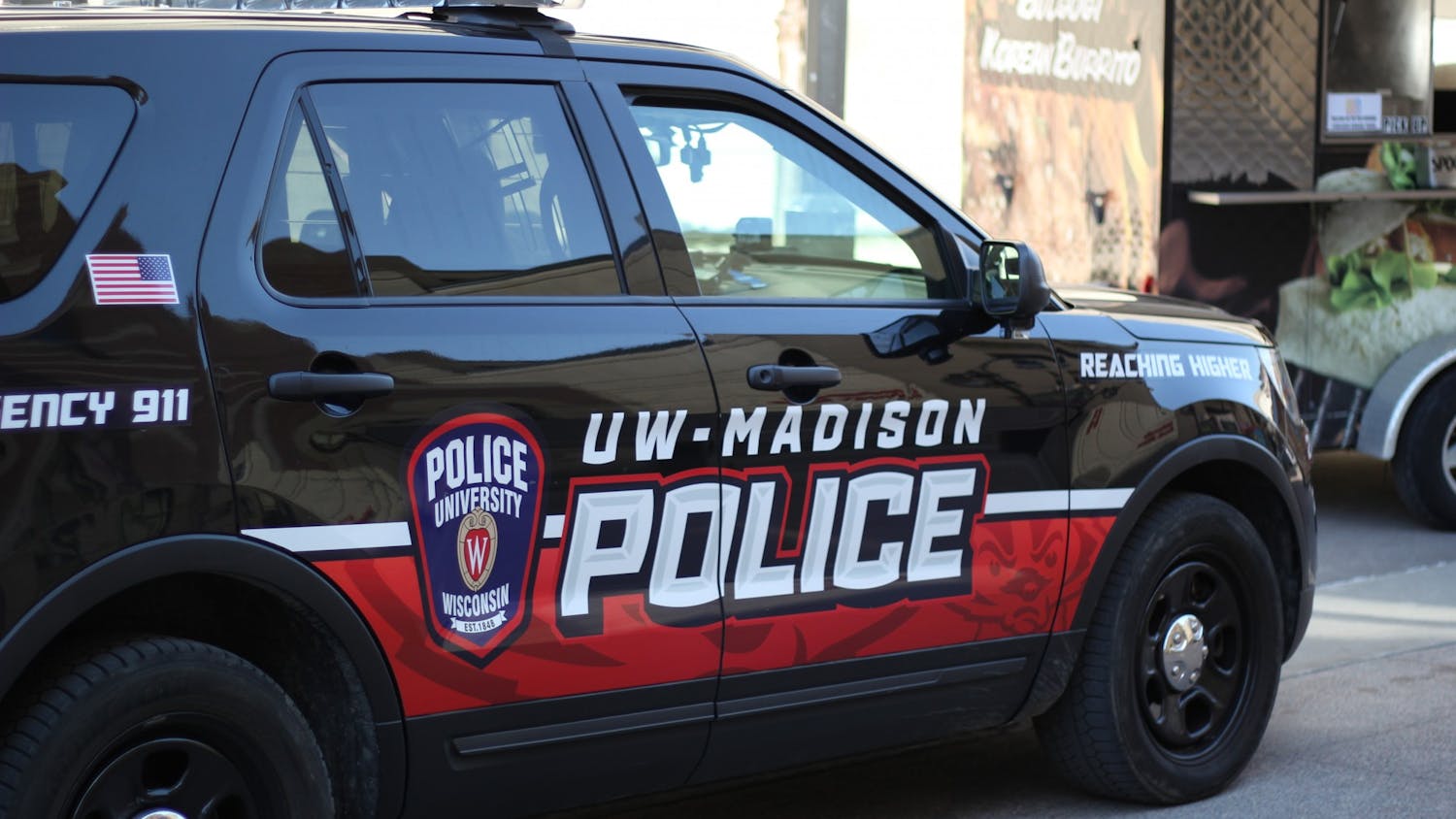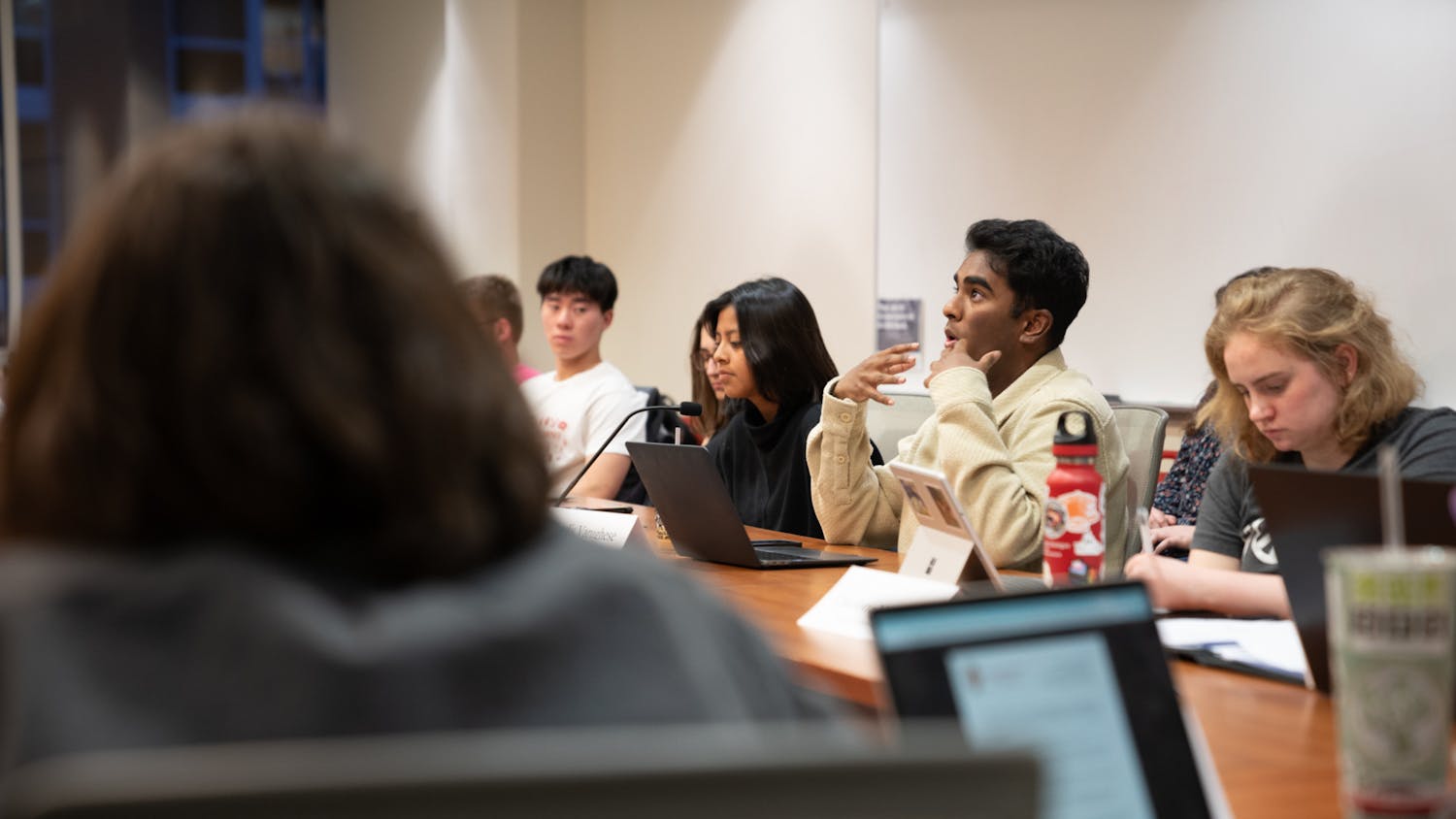As always, this semester was a busy one at UW-Madison. The Daily Cardinal's news team recaps 10 newsworthy moments that could have an effect on the future of the university, the city and the state.
1. Meal plan controversy heats up
UW-Madison’s new meal plan for incoming first-year students living in residence halls — revealed by The Daily Cardinal in late November — faced immediate backlash from UW-Madison students and community members.
Many community members decried the plan as discriminatory for low-income students and those with religious dietary restrictions. This led to protests at Gordon Dining Hall and Four Lakes Market that aimed to show university officials that students were still “outraged” and wanted the plan eliminated.
University officials claimed the plan, which requires students to deposit a minimum of $1,400 onto their WisCard to be used specifically for on-campus dining, would give both students and parents a better idea of what they would be spending on dining. It was soon revealed another goal of the plan was help “financially stabilize” the dining program by ensuring students spend a certain amount of money on dining.
Student committees have since been created to communicate ideas for potential changes to the plan with Dining officials. Additionally, dining officials have altered the plan to allow students the option to opt out if they have religious or dietary restrictions.
Still, students vow to continue to protest and oppose the meal plan until it is eliminated.
-Lawrence Andrea
2. Alec Cook pleads guilty
Alec Cook, the expelled former UW-Madison student, reached a plea deal in February, days before his first scheduled trial in Jefferson County. As a part of the deal, Cook pleaded guilty to five charges, including three counts of third degree sexual assault, one count of strangulation and suffocation and one count of stalking. All five charges spanned five separate incidents, including the first reported incident on Oct. 12, 2016.
Cook was originally charged with 21 charges, 12 of which were sexual assault. Six of those 12 included use of force. Although those charges were thrown out, the judge can consider them at Cook’s sentencing for those he pleaded guilty to. His sentencing hearing will be June 21.
-Max Bayer
3. March for Our Lives in Madison
In the wake of February’s mass shooting in Parkland, Fla., hundreds of UW-Madison students and community members joined thousands of Madison-area high schoolers at the steps of the Wisconsin State Capitol to get the attention of legislators and advocate for tighter gun laws as part of National Walkout Day.
Amid chants of “Enough is enough” and “The NRA has got to go,” UW-Madison students shared stories about how gun violence had negatively impacted their lives. Student leaders from local high schools and elected officials, including state Rep. Chris Taylor, D-Madison, and state Sen. Lena Taylor, D-Milwaukee, spoke about the need for more stringent gun legislation.
This student-led demonstration was just one step in the nation-wide effort to combat gun violence.
-Lawrence Andrea
4. Walker warns of "Blue Wave"
As Democrats hope to capitalize on anti-Trump backlash around the country entering the 2018 elections, several surprise victories in Wisconsin led Gov. Scott Walker to warn his party of a possibly impending “blue wave” in the state.
In January, Democrat and political newcomer Patty Schachtner upset Republican state Rep. Adam Jarchow in a special election to replace Sheila Harsdorf in the state Senate, who was appointed as the state’s agriculture secretary. The district had remained in Republican hands for nearly two decades prior.
After two more Republican lawmakers left their posts to join Walker’s administration, the governor refused to call special elections to replace them, causing many to speculate he feared further electoral losses.
After a third judge ordered him to do so, a call for new elections was issued.
Republican concerns over Democratic electoral momentum were only heightened after a contentious state Supreme Court election, in which the more liberal candidate, Rebecca Dallet, soundly beat her conservative rival, Michael Screnock.
With almost a dozen incumbent Republican legislators retiring across the state, Walker is preparing his party for a potentially rough election year.
-Andy Goldstein
5. Bucky's Tuition Promise announced
In an effort to boost educational access and inclusion for low-income students, UW-Madison will now provide free tuition and segregated fees to students from families making less than $56,000.
Starting in fall 2018, Chancellor Rebecca Blank announced that the university will spend about $3.3 million annually to cover all eligible students.
The promise comes without any additional state funding, and will be completely paid for by private gifts and existing institutional funding.
About 800 incoming freshman are expected to be covered in each new class.
“We know there’s a perception that UW-Madison is financially out of reach for some of our Wisconsin families, and we know this keeps some high school students in our state from applying here,” Blank said. “We don’t want this to be the case any longer. Going forward, we are removing the cost of tuition as a barrier for these families.”
-Andy Goldstein
6. University releases sexual harassment records
Information released to the public regarding sexual harassment at the university found that two teaching assistants in the sociology department allegedly sexually harassed students.
One TA was put in a non-teaching role and will leave the university at the end of the academic year. There was already a sexual harassment case against the TA. In response, the department held a meeting with him in May 2017 to discuss his behavior, but ultimately placed him in a new role. But additional concerns arose in the fall, prompting the TA to leave at the end of the year.
The other TA also had a history of inappropriate contact with students. He invited three females to a concert, sent another female text messages asking her out and forced an undergraduate woman to have sex with him, the records show. He has since graduated.
UW-Madison released the documents after multiple news organizations made open records requests to the university about sexual harassment complaints and investigations at the university over the last decade.
-Maggie Chandler
7. Humanities majors threatened at UW-Stevens Point
In an effort to rectify a $4.5 million deficit, UW-Stevens Point announced a plan to cut 13 humanities majors earlier this semester.
Spanish, history, political science and sociology were among the majors on the chopping block. While courses will still be taught in these departments, the university will see a significant cut in faculty.
The plan, which would also shift funding to increased STEM programming, was met with backlash from students across the UW System. Joined by fellow UW System students, UW-Stevens Point students braved a snowstorm on April 18 to demonstrate in the regents’ office.
However, not all students have been critical of the plan. The UW-Stevens Point College Republicans announced their support of the cuts, and the university, which cited decreased enrollment as a reason for the budget deficit, hopes the renewed emphasis on STEM courses will attract more students.
The controversy surrounding the cuts has led UW System leaders to reconsider the original proposal, and commit to honoring shared governance when making final decisions on how to handle the UW-Stevens Point deficit.
The plan has been criticized by several national organizations, many of which argue eliminating the humanities could be detrimental to students’ future career success.
-Luisa de Vogel
8. Paul Ryan announces retirement
After representing Janesville for two decades, House Speaker Paul Ryan has announced he will not seek reelection in 2018.
One of the most notable Wisconsin political figures for north of a decade, Ryan’s retirement poses new challenges to a party hoping to retain their congressional majority.
Though the district has consistently voted for Republicans for years, Democrats have mounted a more energetic and well-financed challenge than they have in recent memory. Veteran and union ironworker Randy Bryce has raised multitudes more than past Ryan challengers, largely thanks to a nationally viral online Twitter presence.
On the Republican side, several big names in state politics, including Assembly Speaker Robin Vos, were floated out as potential replacements before publicly denying that they would run.
-Andy Goldstein
9. Campus confronts past ties to KKK
After a university study group tasked with researching the history of UW-Madison student organizations previously affiliated with the Ku Klux Klan missed their Dec. 1 deadline to advise campus as how best to respond to this history, the group released their findings in early April.
The group recommended that campus confront its past ties to the Klu Klux Klan by addressing struggles of current underrepresented students, giving Chancellor Blank recommendations to fund a campus history project to recover the histories of marginalized campus members, as well as to commit significant resources to campus divisions, programs and policies that benefit underrepresented students.
The committee, however, did not issue a recommendation on whether to rename the Fredric March Play Circle and Porter Butts Gallery at the Union — both named after members of the 1920’s “Klu Klux Klan” student group. Students took issue with this.
Just under a week after the recommendations were released, a group of UW-Madison students and alumni announced plans to file a hate and bias report against the university for its “inadequacy in renouncing the memorialization of the KKK on campus.”
The same day students filed that report, the Union council met to outline an agenda to rename the spaces,, and also create more Wisconsin Union programing that confronts unexamined racial and religious bigotry on campus. In the meantime, the spaces’ names will be covered and they will simply be referred to as “The Gallery” and “Play Circle.”
-Lawrence Andrea and Sydney Widell
10. Confederate monuments in Madison cemetery to be removed
After debate amongst city officials, city council votes to remove confederate monuments
Over the course of the winter semester, city committees discussed what should be done with two confederate monuments located at Forest Hill Cemetery. Their erection came under scrutiny after the protests in Charlottesville, Va. and in August of last year, the larger of the two monuments was vandalized. It was decided at that time that a more concrete decision needed to be made regarding their existence.
Following a joint meeting between the three committees, the Landmarks, Parks and Equal Opportunities commissions each created their own recommendations for the monuments, many of which varied on whether to remove the monuments entirely or keep them and add an additional plaque that would properly explain the history of the monuments and why they were there. At their meeting on April 10, a proposal for such a plaque failed, the city council unanimously voted to remove the monuments.
-Max Bayer






